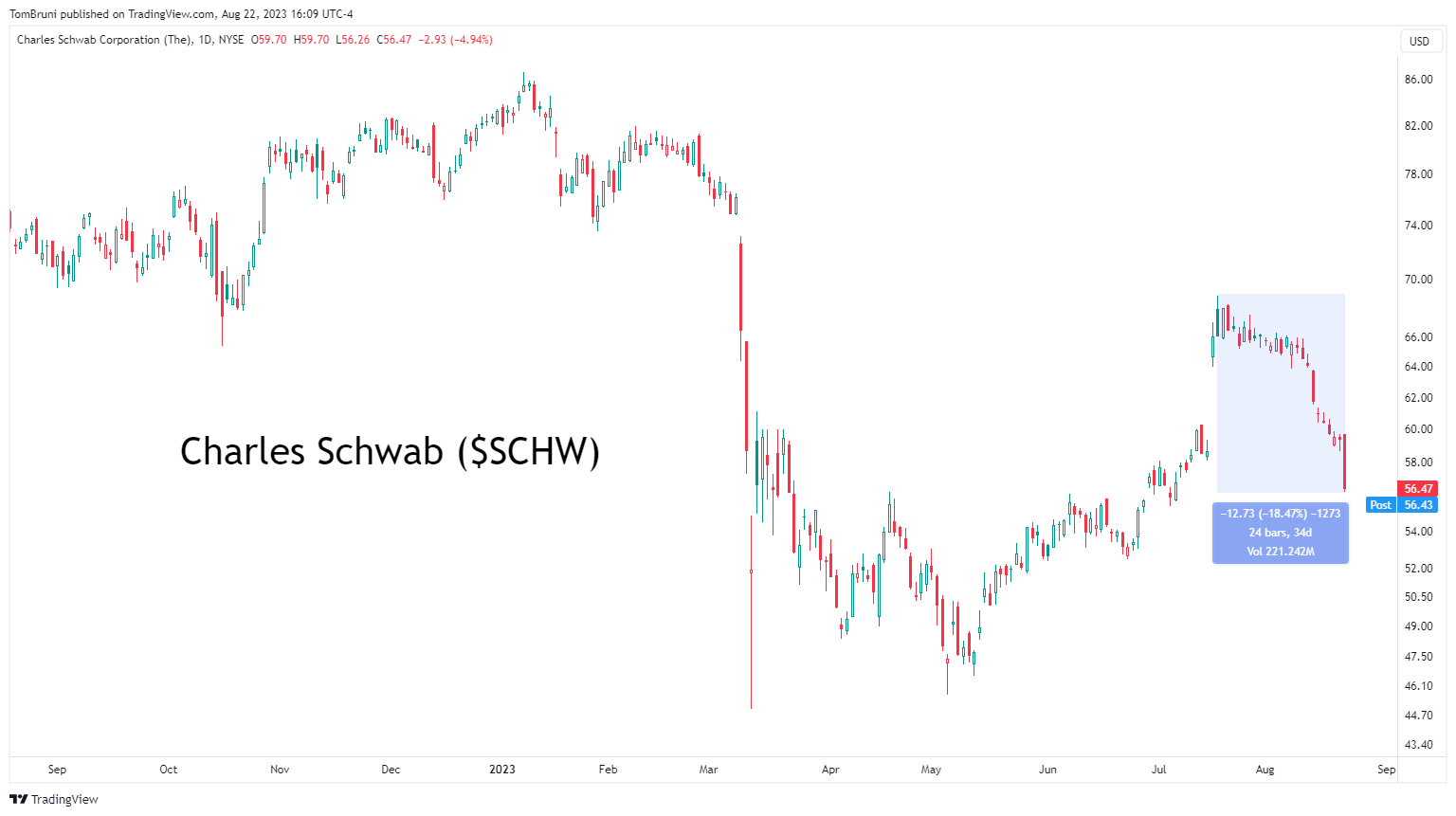Financial services company Charles Schwab is back under pressure today after announcing a significant restructuring. Like other stocks caught up in the “regional banking crisis” earlier this year, it has not fully recovered its decline and is now resuming lower. 📉
Yesterday it announced plans to shutter or downsize some real estate holdings and cut employee headcount to save at least $500 million annually. It’s also issuing 11-year debt at roughly 2% above Treasuries for “general corporate purposes,” as it’s estimating $400 to $500 million in restructuring costs in the year ahead.
Investors remain concerned that competition from higher-yielding products is stealing deposits from Schwab and its competitors. Additionally, the firm reported lower net flows of client money as it integrated TD Ameritrade into its business. 💸
It’s not the only financial services giant to issue debt recently, as Bank of America, Goldman Sachs, Huntington Bancshares, and others have tapped the bond market recently. The entire sector remains under pressure for a variety of reasons. For example, today, S&P Global joined Moody’s in cutting several regional lenders’ credit ratings due to high commercial real estate (CRE) exposure. 🔻
$SCHW shares fell another 5% and are down about 20% over the past month as investors reassess the company’s overall financial health. 🕵️♂️

